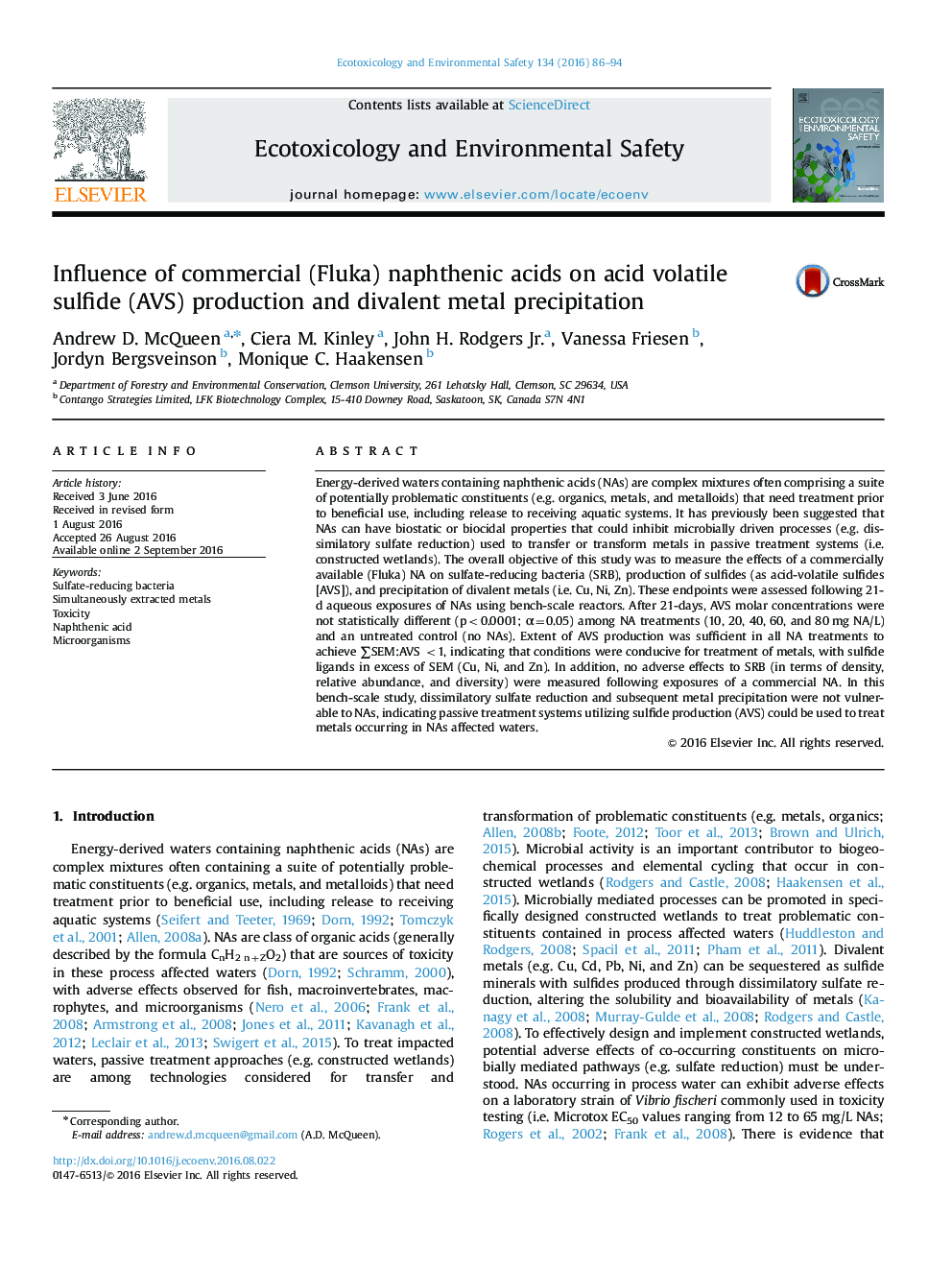| Article ID | Journal | Published Year | Pages | File Type |
|---|---|---|---|---|
| 4419145 | Ecotoxicology and Environmental Safety | 2016 | 9 Pages |
•Naphthenic acids (NA) did not adversely affect copper, nickel, and zinc treatment.•Acid volatile sulfide (AVS) production was similar with and without NA exposures.•Microbial abundance, diversity, and density were not adversely affected by NAs.•Molar ratios of AVS were in excess of copper, nickel, and zinc in all NA exposures.
Energy-derived waters containing naphthenic acids (NAs) are complex mixtures often comprising a suite of potentially problematic constituents (e.g. organics, metals, and metalloids) that need treatment prior to beneficial use, including release to receiving aquatic systems. It has previously been suggested that NAs can have biostatic or biocidal properties that could inhibit microbially driven processes (e.g. dissimilatory sulfate reduction) used to transfer or transform metals in passive treatment systems (i.e. constructed wetlands). The overall objective of this study was to measure the effects of a commercially available (Fluka) NA on sulfate-reducing bacteria (SRB), production of sulfides (as acid-volatile sulfides [AVS]), and precipitation of divalent metals (i.e. Cu, Ni, Zn). These endpoints were assessed following 21-d aqueous exposures of NAs using bench-scale reactors. After 21-days, AVS molar concentrations were not statistically different (p<0.0001; α=0.05) among NA treatments (10, 20, 40, 60, and 80 mg NA/L) and an untreated control (no NAs). Extent of AVS production was sufficient in all NA treatments to achieve ∑SEM:AVS <1, indicating that conditions were conducive for treatment of metals, with sulfide ligands in excess of SEM (Cu, Ni, and Zn). In addition, no adverse effects to SRB (in terms of density, relative abundance, and diversity) were measured following exposures of a commercial NA. In this bench-scale study, dissimilatory sulfate reduction and subsequent metal precipitation were not vulnerable to NAs, indicating passive treatment systems utilizing sulfide production (AVS) could be used to treat metals occurring in NAs affected waters.
Graphical abstractFigure optionsDownload full-size imageDownload as PowerPoint slide
